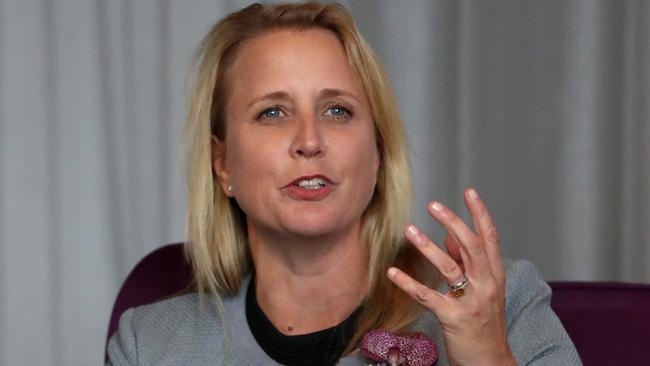Bubs chief Kristy Carr: No sign of Chinese boycott
Bubs has yet to see signs of a Chinese boycott of Australian products, despite a threat from China’s Australian ambassador.

Infant nutrition company Bubs has yet to see signs of a Chinese boycott of Australian products, despite China’s Australian ambassador threatening a trade ban if the Morrison government continued its push for an inquiry into the origins of the coronavirus.
Bubs chief executive Kristy Carr is hopeful talks between the two countries will become more positive, and with good reason.
Business has been strong in China, which accounts for 19 per cent of Bubs’ market, with a significant portion of its domestically sold goods also making its way to the Asian powerhouse due to daigou — or trusted buyers.
“We can’t say we have been affected, based on current rates of supply and forward orders into China across all channels,” Ms Carr said. “China is showing 136 per cent year-on-year dairy growth according Alibaba’s sales.
“Governments do what governments do, but in the commerce segments in which we are involved where quality, purity and provenance are top priorities, Chinese consumers appear unmoved.”
Australia has held firm on calls for a global review into the origins of the virus despite China’s threats to boycott Australian education, tourism and agriculture in retaliation.
For Bubs, it comes at a time when Ms Carr says it is reaching product saturation in the Australian market. On Wednesday, its shares jumped 8.4 per cent to 96.5c, after it announced a new supply agreement with supermarket giant Coles. The group’s organic “super premium” infant formula will be stocked in 482 Coles supermarkets from June, in addition to its goat milk formula and toddler snacks already stocked by the chain.
This deal, along with supply to Baby Bunting stores, are expected to “materially add to the company’s domestic revenues from the fourth financial quarter, with all opening orders to be dispatched in May”.
Ms Carr said the extension of Bubs’ range to organic cow’s milk was a key growth strategy.




To join the conversation, please log in. Don't have an account? Register
Join the conversation, you are commenting as Logout